
Intolerance is a 1916 epic anthology silent film directed by D. W. Griffith. Subtitled as Love's Struggle Throughout the Ages and A Sun-Play of the Ages, the three-and-a-half-hour epic intercuts four parallel storylines, each separated by several centuries: first, a contemporary melodrama of crime and redemption; second, a Biblical story: Christ's mission and death; third, a French story: the events surrounding the St. Bartholomew's Day massacre of 1572; and fourth, a Babylonian story: the fall of the Babylonian Empire to Persia in 539 BC. Each story had its own distinctive color tint in the original print. The scenes are linked by shots of a figure representing Eternal Motherhood, rocking a cradle.

The Brown Bunny is a 2003 independent erotic romantic road drama film written, directed, produced, photographed, and edited by Vincent Gallo. Starring Gallo and Chloë Sevigny, it tells the story of a motorcycle racer on a cross-country drive who is haunted by memories of his former lover. It was photographed with handheld 16 mm cameras in various locations throughout the United States, including New Hampshire, Massachusetts, Ohio, Missouri, Utah, Nevada, and California.

Troy is a 2004 epic historical war film directed by Wolfgang Petersen and written by David Benioff. Produced by units in Malta, Mexico and Britain's Shepperton Studios, the film features an ensemble cast led by Brad Pitt, Eric Bana, Sean Bean, Diane Kruger, Brian Cox, Brendan Gleeson, Rose Byrne, Saffron Burrows and Orlando Bloom. It is loosely based on Homer's Iliad in its narration of the entire story of the decade-long Trojan War—condensed into little more than a couple of weeks, rather than just the quarrel between Achilles and Agamemnon in the ninth year. Achilles leads his Myrmidons along with the rest of the Greek army invading the historical city of Troy, defended by Hector's Trojan army. The end of the film is not taken from the Iliad, but rather from Quintus Smyrnaeus's Posthomerica, as the Iliad concludes with Hector's death and funeral.

Once Upon a Time in America is a 1984 epic crime film co-written and directed by Italian filmmaker Sergio Leone, and starring Robert De Niro and James Woods. The film is an Italian–American venture produced by The Ladd Company, Embassy International Pictures, PSO Enterprises and Rafran Cinematografica, and distributed by Warner Bros. Based on Harry Grey's novel The Hoods, it chronicles the lives of best friends David "Noodles" Aaronson and Maximilian "Max" Bercovicz as they lead a group of Jewish ghetto youths who rise to prominence as Jewish gangsters in New York City's world of organized crime. The film explores themes of childhood friendships, love, lust, greed, betrayal, loss, and broken relationships, together with the rise of mobsters in American society.

Cinema Paradiso is a 1988 coming-of-age dramedy film written and directed by Giuseppe Tornatore.
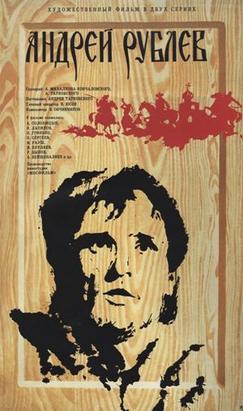
Andrei Rublev is a 1966 Soviet epic biographical historical drama film directed by Andrei Tarkovsky who co-wrote it with Andrei Konchalovsky. The film was re-edited from the 1966 film titled The Passion According to Andrei by Tarkovsky which was censored during the first decade of the Brezhnev era in the Soviet Union. The film is loosely based on the life of Andrei Rublev, a 15th-century Russian icon painter. The film features Anatoly Solonitsyn, Nikolai Grinko, Ivan Lapikov, Nikolai Sergeyev, Nikolai Burlyayev and Tarkovsky's wife Irma Raush. Savva Yamshchikov, a famous Russian restorer and art historian, was a scientific consultant for the film.
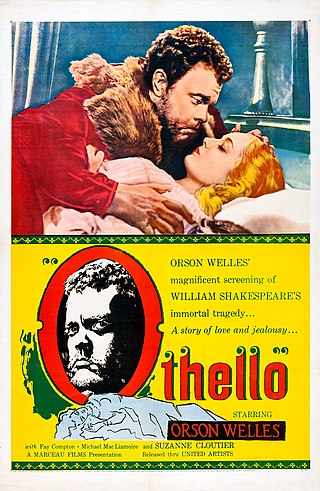
Othello is a 1951 tragedy directed and produced by Orson Welles, who also adapted the Shakespearean play and played the title role. Recipient of the Grand Prix du Festival International du Film at the 1952 Cannes Film Festival, the film was distributed by United Artists when it was released in the United States in 1955. Othello was filmed on location over a three-year period in Morocco, Venice, Tuscany and Rome as well as at the Scalera Studios in Rome.

Apocalypse Now Redux is a 2001 American extended version of Francis Ford Coppola's epic 1979 war film Apocalypse Now. Coppola, along with editor and longtime collaborator Walter Murch, added 49 minutes of material that had been removed from the initial theatrical release. It is a significant re-edit of the original version.
Chronopolis may refer to:

Yol is a 1982 Turkish film directed by Yılmaz Güney and Şerif Gören. The screenplay was written by Güney, and directed by his assistant Gören, as Güney was in prison at the time. Later, after Güney escaped from Imrali prison, he took the negatives of the film to Switzerland and later edited it in Paris.
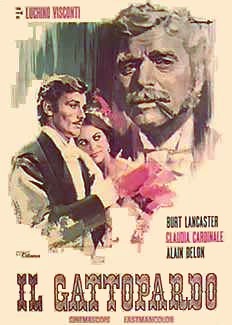
The Leopard is a 1963 epic historical drama film directed by Luchino Visconti. Written by Visconti, Suso Cecchi d'Amico, Enrico Medioli, Pasquale Festa Campanile, and Massimo Franciosa, the film is an adaptation of the 1958 novel of the same title by Giuseppe Tomasi di Lampedusa.
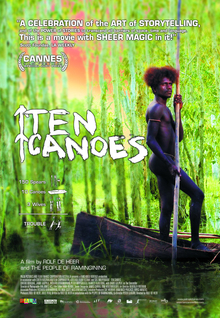
Ten Canoes is a 2006 Australian historical drama/docudrama film directed by Rolf de Heer and Peter Djigirr and starring Crusoe Kurddal. The film is set in Arnhem Land in northern Australia, before Western influence, and tells the story of a group of ten men doing traditional hunting in canoes. A narrator tells the story, and the overall format is that of a moral tale.
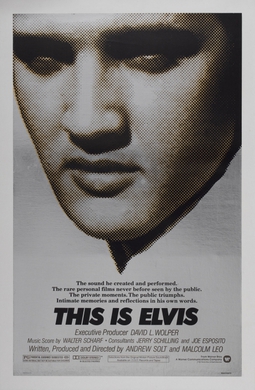
This Is Elvis is a 1981 American documentary film about the life of Elvis Presley, written and directed by Andrew Solt and Malcolm Leo. It combines archival footage with reenactments, and voice-over narration by pop singer Ral Donner, imitating Presley's speaking voice. It was screened out of competition at the 1981 Cannes Film Festival. The film grossed $2 million at the box office in the U.S. and Canada, ranking #92 for 1981.

Kisapmata is a 1981 Philippine psychological horror film directed by Mike de Leon from a screenplay he co-wrote with Clodualdo del Mundo Jr. and Raquel Villavicencio. It stars Vic Silayan, Charo Santos, Jay Ilagan, and Charito Solis. The plot was inspired by the crime reportage "The House on Zapote Street" written by Nick Joaquin. The piece chronicles the events leading to the highly publicized familicide committed by Pablo Cabading, a retired policeman.

Seven different versions of Ridley Scott's 1982 science fiction film Blade Runner have been shown, either to test audiences or theatrically. The best known versions are the Workprint, the US Theatrical Cut, the International Cut, the Director's Cut, and the Final Cut. These five versions are included in both the 2007 five-disc Ultimate Collectors Edition and 2012 30th-Anniversary Collector's Edition releases.
Don Quixote is an unfinished film project written, co-produced and directed by Orson Welles. Principal photography took place between 1957 and 1969. Test footage was filmed as early as 1955, second-unit photography was done as late as 1972, and Welles was working on the film intermittently until his death in 1985. The film was eventually edited by Jesús Franco and was released in 1992, to mixed reviews.

The Sun Shines Bright is a 1953 American comedy-drama Western film directed by John Ford, based on material taken from a series of Irvin S. Cobb "Judge Priest" short stories featured in The Saturday Evening Post in the 1910s, specifically "The Sun Shines Bright", "The Mob from Massac", and "The Lord Provides".
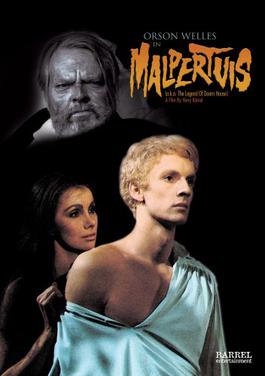
Malpertuis is a 1971 Belgian fantasy horror film directed by Harry Kümel, based on the 1943 novel of the same name. It was selected for the official selection and was presented "in competition" at the 1972 Cannes Film Festival. A Flemish "director's cut" version was released in 1973.
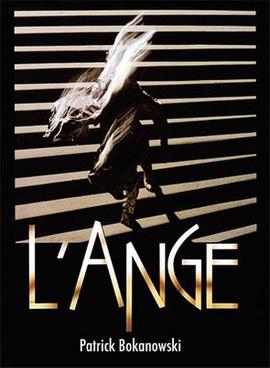
The Angel is a 1982 French experimental art film directed by Patrick Bokanowski. It was released on DVD for the first time in 2009, edited by the British Animation Awards. The film was shown at Fantasporto during February 1983 and shown to the general public in France on April 4, 1984.
Piotr Kamler is a Polish avant-garde animator, director, cinematographer, and writer best known for his films Chronopolis (1982) and The Step (1975).

















